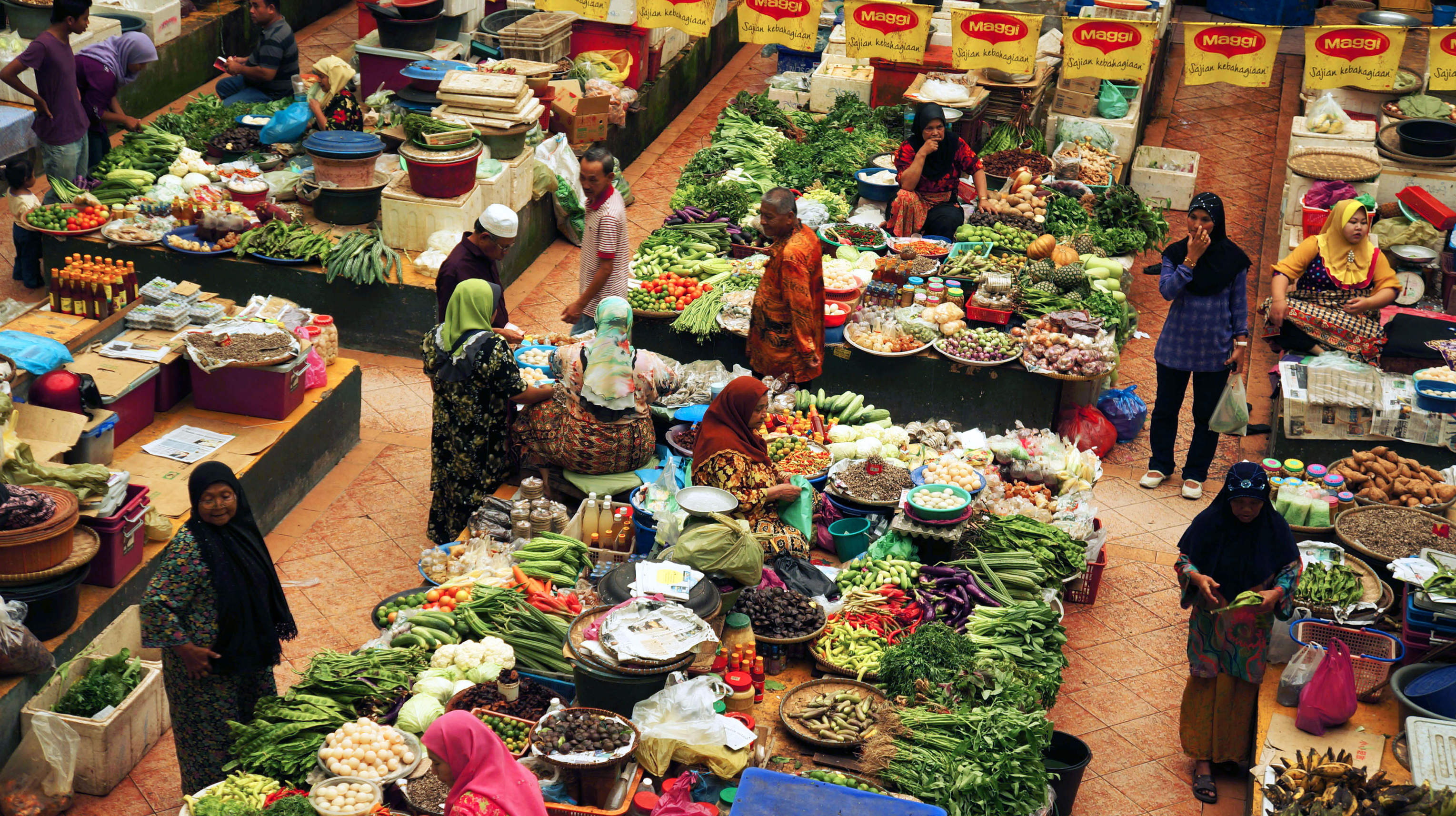Faculty gain insights from Southeast Asia

In a huge, multilevel fresh-foods market in Kota Bharu, Malaysia, two Virginia Tech faculty members marveled at the din, the stalls, and the vendors — a marked preponderance of women. The professors tasted mangosteen and rambutans, fruits exotic to them. But the pungent nectar wasn’t the profound part of the day for Akshay Sharma of the College of Architecture and Urban Studies.
“Just look around you,” says Sharma, who teaches industrial design, waving his arm at the colorful tableau of fruits and vegetables. “There is so much going on, so much at stake, but everybody is content. There is no yelling, screaming, or cutthroat competition to sell their stuff. Everything is organized. Everybody is just chilling out and waiting for the customers to show up.”
He grins, winding up to his conclusion: “If the world were run by women, I think it would be a much better place.”
Sharma’s insight reflects what happens when faculty members are empowered to see through a global lens, a goal of Virginia Tech’s annual International Faculty Development Program. The perspectives they gain on the two-week trip strengthen their teaching and inform their research, says Guru Ghosh, vice president for Outreach and International Affairs.
Each faculty member lines up high-level researchers and professionals to meet with, which “broadens the scope of their work beyond the geographic boundaries of one nation.”
Along with Sharma, Kathy Hosig of the Virginia-Maryland College of Veterinary Medicine spent five days in Malaysia. She learned much from her counterparts, who work with chronic disease sufferers “very similar to the marginalized populations I work with in the U.S.,” Hosig says.
Her journey took her from the capital, Kuala Lumpur, to coastal areas including Langkawi Island. The sights and sounds included a squid fisherman throwing a cast net into shallow waters, the sizzle of fish on a restaurant’s outdoor grill, and a brigade of motorcycles pulling up to an outdoor café.
These were unexpected bonuses for someone who “had never actually considered doing international work before this,” she says.
As an academician, the payoffs were many. She returned to Blacksburg with ideas for collaboration, capitalizing on the fact that populations in both the U.S. and Malaysia suffer from similar rates of chronic disease.
For his part, Sharma gained an opportunity to share a microfinance board game that he and his students developed as an anti-poverty tool. A University of Malaya researcher is eager to incorporate the game into a study of sex workers in Kuala Lumpur. For the sex workers, it might lead to alternative ways of earning income.
“That is one of the beauties of the program,” Ghosh says. “It creates many benefits, and many of them could not have been predicted.”



